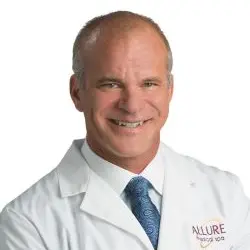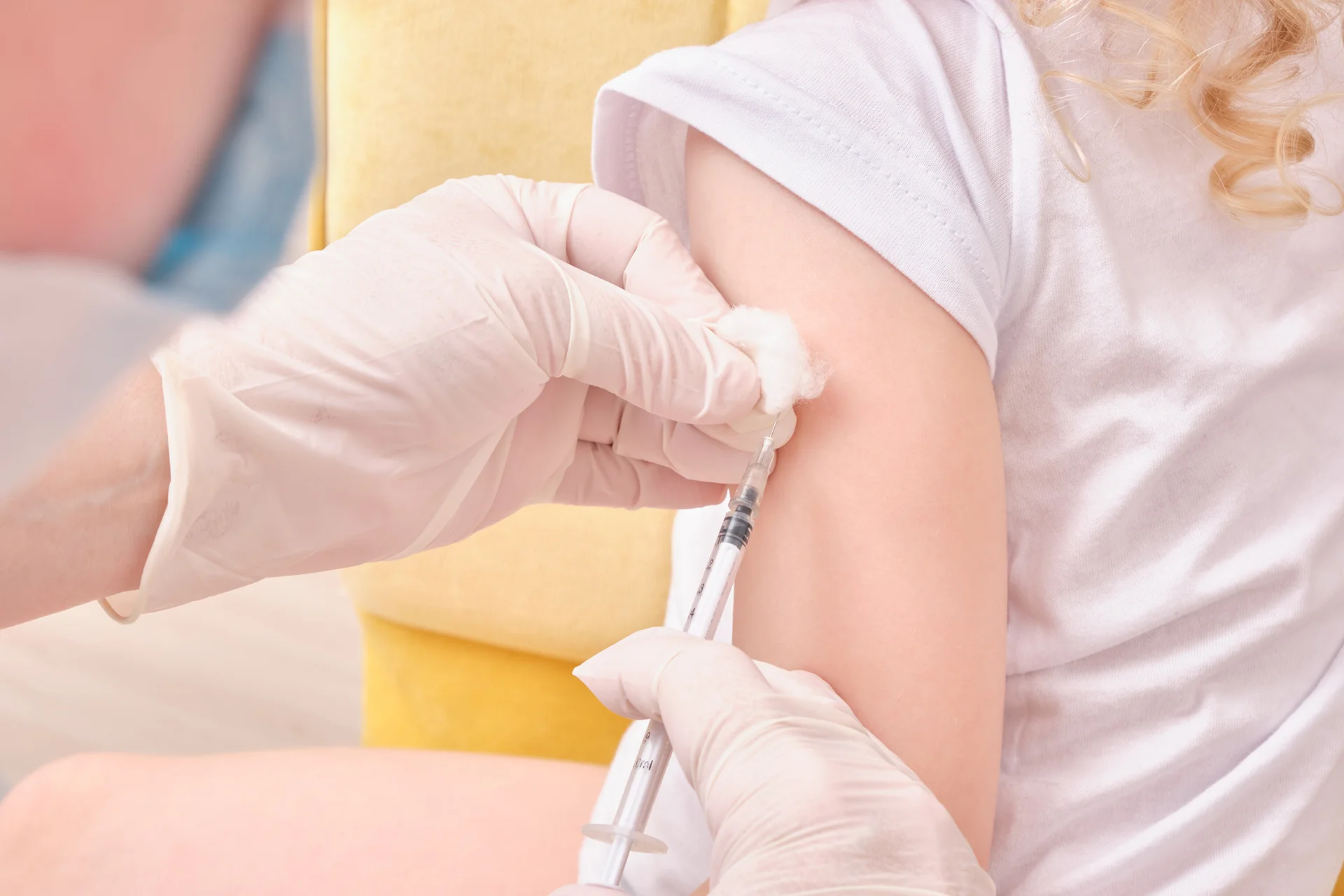Growth Hormone Injections: Transforming Lives Beyond Physical Growth
Growth hormone injections are a pivotal solution for individuals facing growth deficiencies.
In children, these deficiencies often stem from insufficient hormone production by the pituitary gland, leading to notably slower growth rates.
Adults aren’t spared either, with deficiencies potentially causing increased fat, altered cholesterol levels, and weaker bones.
This article delves into the significance of these injections, exploring their necessity, benefits, and safety, enriched with insights from Allure Medical’s expertise. Let’s uncover the essentials of this vital treatment.
What Are Growth Hormone Injections?
Growth hormone (GH), also known as somatotropin, is a protein hormone produced in the pituitary gland located at the base of the brain.
It plays a vital role in regulating growth, metabolism, and body composition from childhood through adulthood.
Growth hormone stimulates the production of insulin-like growth factor-1 (IGF-1), which facilitates bone and tissue growth.
Growth hormone injections contain a synthetic form of human growth hormone (HGH). They are used to treat growth failure and short stature in children, as well as growth hormone deficiency in adolescents and adults.
The injections essentially supplement the body’s natural HGH levels, which may be insufficient due to medical reasons.
How Do They Work?
When administered through subcutaneous injection, the synthetic HGH binds to growth hormone receptors, initiating a signaling cascade that promotes skeletal growth, increases bone density, and stimulates protein synthesis.
This leads to an increase in lean body mass and a reduction in fat mass. The effects of growth hormones are widespread, influencing metabolism, body fluid composition, cardiovascular health, and more.
Who Needs Growth Hormone Injections and What’s the Age Limit?
Growth hormone injections are primarily prescribed for two groups of individuals:
Children with Growth Disorders
In children, GH injections are used to treat deficiencies in endogenous growth hormone production, which can lead to short stature and growth failure. The common conditions treated include:
- Growth hormone deficiency: due to congenital causes or acquired damage to the pituitary gland
- Turner syndrome: a chromosomal disorder in girls
- Chronic kidney disease
- Prader-Willi syndrome: a genetic disorder characterized by constant hunger and poor growth
Treatment is generally recommended once growth issues become evident, typically around the onset of puberty. GH therapy should be initiated before the growth plates in the bones fuse to improve adult height potential.
Growth plates close between ages 14-16 in girls and 16-18 in boys, setting a limitation on the age to start GH injections. Early diagnosis and intervention are key.
Adults with Growth Hormone Deficiency
In adults, growth hormone deficiency may occur as a result of pituitary tumors, trauma, or other damage to the gland.
Symptoms include increased body fat (especially abdominal fat), reduced muscle mass, poor bone density, low energy levels, and impaired cardiac function.
GH injections can help ameliorate these effects in deficient adults. It is also approved to treat adults with AIDS- or HIV-related growth hormone deficiency that causes irregular distribution of body fat.
They are generally prescribed for patients displaying multiple symptoms after confirmation of GH deficiency through stimulation tests. Treatment is tailored to the individual’s needs.
What Are the Benefits of Growth Hormone Injections?
When administered under medical guidance, growth hormone injections offer a variety of benefits:
In Children:
- Increased height velocity and improved adult height potential
- Corrected body proportions
- Increased muscle mass and strength
- Improved respiratory function
- Enhanced bone density and mineralization
- Improved lipid and carbohydrate metabolism
- Increased exercise capacity
In Adults:
- Increased lean body mass and decreased fat mass
- Improved bone mineral density
- Enhanced muscle strength and exercise capacity
- Better cardiac function and cardiovascular health
- Improved mood, energy, and quality of life
- Restored proper metabolic function and body fluid homeostasis
The anti-aging industry has promoted GH as a “fountain of youth” hormone. However, reputable medical organizations only recommend GH therapy for confirmed clinical deficiencies, not for unapproved uses like athletic enhancement or slowing the natural aging process.
What Are the Common Side Effects and Risks of Growth Hormone Injections?
While GH injections offer important benefits for patients with growth disorders, they also carry potential side effects and risks, especially with long-term use. Patients on GH therapy should be closely monitored by a doctor.
Short-Term Side Effects
- Pain, swelling, or irritation at the injection site
- Joint and muscle pain
- Carpal tunnel syndrome
- Swelling due to fluid retention
- Headache
- Nausea
Long-Term Risks
- Enlargement of the hands, feet, forehead, jaw, and facial features, called acromegaly
- Joint pain
- Diabetes risk due to altered glucose metabolism
- Cardiovascular complications
- Increased risk of certain cancers
- Liver and kidney dysfunction
GH therapy may also interact with other medications. Proper dosing and ongoing medical supervision are essential to mitigate adverse effects.
At Allure Medical, our experts carefully evaluate each patient and provide counsel on the benefits and potential risks of GH injections. We utilize responsible treatment protocols and regularly monitor patients to achieve optimal outcomes.
How Do Growth Hormone Injections Specifically Benefit Women and Children?
Growth hormone therapy offers unique advantages for women and children suffering from GH deficiency:
For Children:
- GH injections started at a young age can add several inches to a child’s adult height. Early diagnosis and treatment are key.
- GH stimulates bone growth and strengthens bone density.
- It increases muscle mass and reduces body fat percentage.
- Respiratory health may improve.
- Benefits are seen across endocrine, musculoskeletal, cardiovascular, and metabolic functions.
For Women:
- GH therapy can increase lean muscle mass and decrease fat accumulation, helping reshape body composition.
- It improves bone mineral density, reducing fracture risk. Osteopenia and osteoporosis risks are decreased.
- Women may experience improved exercise capacity and cardiovascular function.
- Menopausal symptoms may be reduced due to GH effects on lipid metabolism.
- Skin, nails, and hair may become thicker and more resilient.
Allure Medical provides personalized GH treatment regimens to help women and children suffering from disorders like growth hormone deficiency, Turner syndrome, and other conditions achieve improved health and well-being.
Efficacy and Safety of Growth Hormone Injections
General Safety Profile
Growth hormone (GH) treatments are generally considered safe. Despite previous concerns about increased mortality risk in adulthood, recent extensive studies have shown reassuring results.
For instance, a substantial study published in The Journal of Clinical Endocrinology & Metabolism in 2021, which involved 37,702 patients and accounted for 130,476 patient-years of exposure, found no increased mortality risk or rise in adverse event incidence related to GH dose across various risk groups.
Long-term Safety Concerns
Historical data dating back to 1958 indicates that GH therapy has maintained an excellent safety profile in the short term. However, there has always been a degree of concern regarding potential long-term side effects. This ongoing caution underlines the importance of continued monitoring and research.
Effectiveness in Adults
While human growth hormone can increase muscle mass and reduce body fat in healthy older adults, these changes do not necessarily translate into increased strength. This highlights a discrepancy between physical changes and functional improvements, indicating the complexity of GH treatment outcomes.
How to Obtain and What to Expect from Growth Hormone Injection Therapy
Patients looking to start growth hormone therapy should take the following steps:
- Set up a consultation with a hormone specialist like those at Allure Medical. Your medical history will be reviewed and a physical exam conducted.
- Blood tests will check for deficiencies in GH and IGF-1 levels. Stimulation tests may also confirm GH deficiency.
- Imaging scans of the pituitary gland may be done to check for abnormalities.
- If a need for GH treatment is established, your doctor will prescribe injection doses based on factors like your age, size, and extent of deficiency.
- Most patients start with a low dose, which is gradually increased over weeks or months.
- Injections are self-administered 3 to 7 times per week, typically in the evening.
- Progress will be monitored via IGF-1 lab tests, height measurements, bone age tests, etc.
- Lifestyle and diet adjustments may be recommended to optimize results.
- Therapy may continue for several years until sufficient growth is achieved.
Undergoing GH treatment through an experienced clinic like Allure Medical ensures safe, effective therapy per established endocrinology guidelines.
The Future of Growth Hormone Injection Therapy
Growth hormone therapy has advanced significantly over the past several decades, with ongoing improvements in safety, effectiveness, and patient outcomes. Areas of future progress include:
- Longer-lasting growth hormone formulations requiring less frequent injections.
- Enhanced delivery methods like oral or transdermal options to replace injections.
- Combination treatments with other hormones like thyroid, glucocorticoids, or sex steroids.
- Increased accuracy in growth hormone dosing and adjustment.
- Greater understanding of growth hormone’s mechanisms, allowing more targeted therapy.
- Expanding patient criteria as new growth disorder subgroups are identified.
- Monitoring for long-term health outcomes and adverse effects with prolonged use.
Growth hormone research continues to evolve rapidly. Allure Medical stays abreast of the latest advancements in GH treatment, providing patients with the most advanced, individualized therapy options backed by established endocrinology guidelines. Our team is dedicated to safely optimizing patient health and wellness through innovative hormone therapies.
Conclusion: Optimizing the Benefits and Minimizing the Risks
Growth hormone injections can provide substantial benefits for children and adults with confirmed GH deficiency.
However, there are potential side effects that need to be carefully considered. Working with a specialized clinic ensures safe, responsible treatment protocols tailored to each patient’s needs.
With close monitoring and ongoing patient education, the benefits of GH therapy can be optimized while minimizing associated risks. As growth hormone research progresses, better treatment options promise to emerge.










